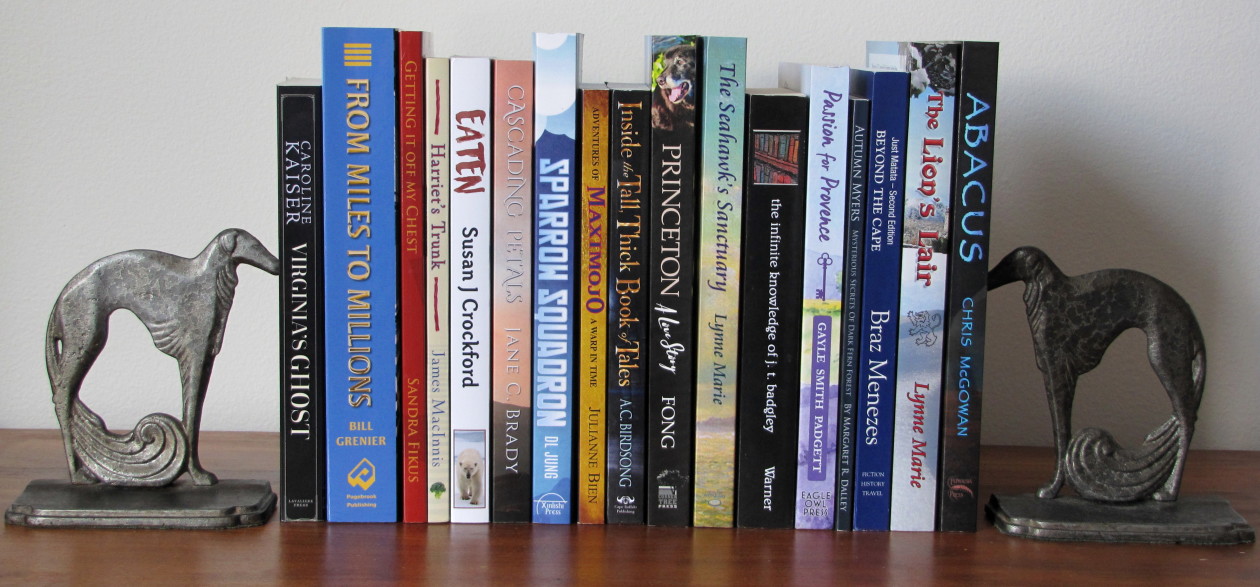If you regularly hang out in online writers’ groups, you’ll notice a certain animosity toward editors from some of the participants. Although many writers in such groups see editors as valuable partners in elevating their manuscript to a publishable state, there’s a vocal minority, many of whom haven’t had their work edited before, who distrust editors. Their attitude stems partly from the discomfort of having their work scrutinized, which I fully understand. As an editor who’s also had my writing edited, I know it’s not easy being on the receiving end of criticism, however tactful and constructive it may be—and we editors go out of our way to be sensitive and helpful! But perceiving us as the enemy also stems from misconceptions about what we actually do. One of those misconceptions is that an editor is going to steal your work.
I’m surprised by how often I see people in writers’ groups saying this. I guess manuscript theft could happen, but only if you’re unfortunate enough to fall victim to a bad apple. Let me be clear—no reputable editor is going to steal their client’s work. If they did, word of this would get around and ruin the editor’s business in no time at all. Trust me, if an editor has spent years honing their skills and their reputation in the publishing industry, destroying their business is the last thing they want. They’re not looking to invite lawsuits from authors. And think about it: Would publishing someone else’s manuscript under their own name really be a good way for an editor to increase their income? If they wanted to self-publish your book, they’d have to put considerable time into editing it, designing it themselves (if they have the skills) or hiring a designer, and marketing it themselves. The reality is that very few books sell enough copies to make going to all that time and effort and expense worthwhile. And then there’s the fact that professional editors are an ethical bunch. Doing the best we can for our clients is part of our training, and most of us get upset with ourselves when we allow a mistake to slip into a client’s published book. We get into this business not only because we enjoy working with words and have a facility for it, but also because we like helping people make their dreams come true. It’s satisfying to see our authors succeed—a form of psychic pay. If we wanted to get rich quick, we would have chosen a different career path.
Behind “an editor is going to steal my work” lurks the big question: So how do I find a reputable editor? Start by consulting directories of professional editors, such as Editors Canada, Editorial Freelancers Association (EFA) in the US, and the Chartered Institute of Editing and Proofreading (CIEP) in the UK. At such sites, you’ll find profiles of editors, and you can narrow the field to a few promising prospects who might suit your needs. Does the editor have experience in your genre? You wouldn’t want to work with someone who’s never edited chick lit if that’s what you’re writing, as they won’t be familiar with the conventions of the genre. What kind of qualifications do they have as an editor? Look at their educational achievements and length of time in the industry. And do they have a previous career that would make them a particularly good fit for you? Many editors had other careers well before they came to editing (for instance, I worked with antiques and was an appraiser at an auction house), and if their knowledge of a particular field matches your subject matter, they’d be an obvious choice. All such details of an editor’s background should be apparent from the profile—and their website.
When you find someone promising, start an email conversation with them and you’ll gain a better understanding of whether or not the two of you are in sync. The editor should answer your emails within a reasonable period of time, seem interested in your project, and be pleasant to deal with. They should be able to explain the process if you were to work together and be able to define any publishing industry terms that might be unfamiliar to you (such as what the various types of editing entail). If communication is somehow difficult between you and the editor—you feel that you don’t see eye to eye, or that the editor isn’t adequately addressing your concerns—you probably won’t enjoy working together and should seek someone else.
When you ask, “What do you charge?” be aware that no professional editor is going to throw out a number before seeing a sample of your work (or in some cases, the entire manuscript) and knowing your manuscript’s word count. Writing quality varies significantly from one writer to the next, and editors can’t determine the depth of the editing or the types of editing you’ll need without seeing your writing. If an editor does give you a dollar figure without seeing a sample and knowing your word count, they’re not someone you should ever hire. And if they seem ridiculously cheap, that’s a red flag as well. And do ask for a sample edit; most editors will provide one of about a thousand words or so free of charge. It’s the best indicator of the editor’s skill level and whether or not their style of editing suits you. If you still need reassurance that you’re dealing with a professional, ask to see a copy of the editor’s standard contract. They should readily provide you with one, and the terms and conditions contained within are a good indicator of their level of professionalism.

 Follow
Follow